Related Research Articles
Distance education, also known as distance learning, is the education of students who may not always be physically present at school, or where the learner and the teacher are separated in both time and distance. Traditionally, this usually involved correspondence courses wherein the student corresponded with the school via mail. Distance education is a technology-mediated modality and has evolved with the evolution of technologies such as video conferencing, TV, and the Internet. Today, it usually involves online education and the learning is usually mediated by some form of technology. A distance learning program can either be completely a remote learning, or a combination of both online learning and traditional offline classroom instruction. Other modalities include distance learning with complementary virtual environment or teaching in virtual environment (e-learning).
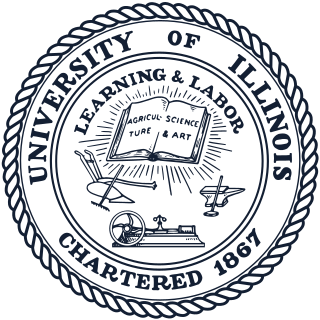
The University of Illinois Urbana-Champaign is a public land-grant research university in the Champaign–Urbana metropolitan area, Illinois, United States. It is the flagship institution of the University of Illinois system and was established in 1867. With over 59,000 students, the University of Illinois is one of the largest public universities by enrollment in the United States.

The Open University of Sri Lanka is a national university in Sri Lanka. It is unique within the Sri Lankan national university system for being the only university to offer programs of study leading to certificate, diploma, degrees and postgraduate degrees up to PhD level through the Open and Distance Mode of Learning (ODL). The degrees awarded by the university are treated as equivalent to degrees awarded by any other Sri Lankan University under the preview of the University Grants Commission.
LEEP may refer to:

Bunkyo University is a private university located in Shinagawa, Tokyo, Japan, with campuses in Saitama and Kanagawa Prefecture.
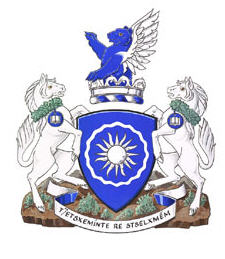
Thompson Rivers University is a public teaching and research university offering undergraduate and graduate degrees and vocational training. Its main campus is in Kamloops, British Columbia, Canada, and its name comes from the two rivers which converge in Kamloops, the North Thompson and South Thompson. The university has a satellite campus in Williams Lake, BC and a distance education division called TRU-Open Learning. It also has several international partnerships through its TRU World division. TRU is accredited by the Northwest Commission on Colleges and Universities (NWCCU) at the associate, baccalaureate and master's degree levels.

Southern Illinois University Edwardsville (SIUE) is a public university in Edwardsville, Illinois. Located within the Metro East of Greater St. Louis, SIUE was established in 1957 as an extension of Southern Illinois University Carbondale. It is the younger of the two major institutions of Southern Illinois University system. SIUE has eight constituent undergraduate and graduate colleges, including those in arts and sciences, business, dentistry, education, engineering, graduate study, nursing, and pharmacy, in addition to the East St. Louis Center.
The UCLA School of Education and Information Studies is one of the academic and professional schools at the University of California, Los Angeles. Located in Los Angeles, California, the school combines two departments. Established in 1881, the school is the oldest unit at UCLA, having been founded as a normal school prior to the establishment of the university. It was incorporated into the University of California in 1919.
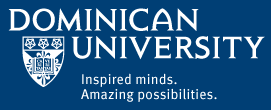
Dominican University (DU), known from 1922 to 1997 as Rosary College, is a private Roman Catholic university in River Forest, Illinois, affiliated with the Sinsinawa Dominican Sisters. It offers bachelor's and master's degrees, certificate programs, and a PhD in information studies. Dominican University offers more than 50 majors in the Rosary College of Arts and Sciences and 20 programs in five graduate academic divisions.
A virtual university provides higher education programs through electronic media, typically the Internet. Some are bricks-and-mortar institutions that provide online learning as part of their extended university courses while others solely offer online courses. They are regarded as a form of distance education. The goal of virtual universities is to provide access to the part of the population who would not be able to attend a physical campus, for reasons such as distance—in which students live too far from a physical campus to attend regular classes; and the need for flexibility—some students need the flexibility to study at home whenever it is convenient for them to do so.
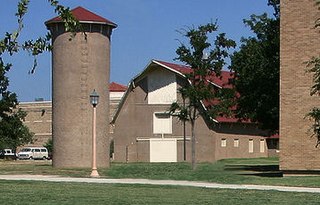
Agricultural education is the systematic and organized teaching, instruction and training available to students, farmers or individuals interested in the science, business and technology of agriculture as well as the management of land, environment and natural resources.
The Master of Library and Information Science (MLIS), also referred to as the Master of Library and Information Studies, is the master's degree that is required for most professional librarian positions in the United States. The MLIS is a relatively recent degree; an older and still common degree designation for librarians to acquire is the Master of Library Science (MLS), or Master of Science in Library Science (MSLS) degree. According to the American Library Association (ALA), "The master’s degree in library and information studies is frequently referred to as the MLS; however, ALA-accredited degrees have various names such as Master of Information Studies, Master of Arts, Master of Librarianship, Master of Library and Information Studies, or Master of Science. The degree name is determined by the program. The [ALA] Committee for Accreditation evaluates programs based on their adherence to the Standards for Accreditation of Master's Programs in Library and Information Studies, not based on the name of the degree."

Kaplan University (KU) was a private online for-profit university owned by Kaplan, Inc., a subsidiary of Graham Holdings Company. It was predominantly a distance learning institution, maintaining 14 ground locations across the United States. The university was named in honor of Stanley H. Kaplan, who founded Kaplan Test Prep. It was regionally accredited by the Higher Learning Commission, one of seven major accrediting bodies in the U.S., but some programs did not have the field-specific accreditation needed for graduates to obtain certification.

The School of Information Sciences, also The iSchool at Illinois, is an undergraduate and graduate school at the University of Illinois Urbana–Champaign. Its Master of Science in Library and Information Science is currently accredited in full good standing by the American Library Association. The school is a charter member of the iSchool initiative.
The Adventist International Institute of Advanced Studies (AIIAS), is a Seventh-day Adventist graduate institution located in the Philippines, offering graduate degrees in Business, Education, Public health, and Theology. It is a part of the Seventh-day Adventist education system, the world's second largest Christian school system.

The Valencian International University (VIU) is a private university in Spain with an international remit. It was founded by the regional government of Valencia in 2008. 70% of it was later acquired by the Planeta publishing house. The university is officially recognized by the Spanish Ministry of Education. It is headquartered in Valencia, Spain.
American Heritage University of Southern California (AHUSC) is an unaccredited for-profit college based in Southern California.
The Technological Educational Institute (TEI) of Central Greece was a university founded in 2013, had a main campus 15.81 acres (0.0640 km2) in the City of Lamia, Phthiotis, Central Greece, and four branch campuses. An institution of higher education of the State University System of Greece, having full self governance and functions under the supervision of the Ministry of Education, laws 2916 on 11-6-2001 and 3549 on 20-3-2007. The Technological Institute of Central Greece has abolished on 29 January 2019 and ceased to be a university in its own name status by an Act of Hellenic Parliament, Law 4589/29-1-2019. Educational departments absorbed by the Agricultural University of Athens (AUA), National and Kapodistrian University of Athens (NKUA), University of Thessaly (UTH).
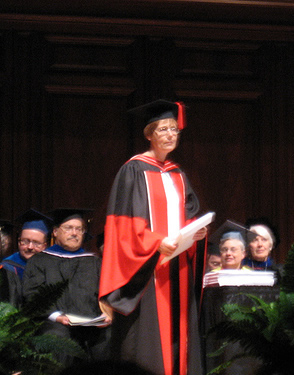
Caroline Haythornthwaite is a professor emerita at Syracuse University School of Information Studies. She served as the School's director of the Library Science graduate program from July 2017 to June 2019. She previously served as Director and Professor at the Library, Archival and Information Studies, School of SLAIS, at The iSchool at The University of British Columbia (UBC). Her research areas explore the way interaction, via computer media, supports and affects work, learning, and social interaction, primarily from a social-network-analysis perspective. Previously, during 1996–2010, at the University of Illinois at Urbana-Champaign (UIUC), Haythornthwaite had worked as assistant professor, associate, or full professor in the Graduate School of Library and Information Science (GSLIS).

NYU Tandon Digital Learning, formerly known as NYU Tandon Online and NYU-ePoly, is the digital learning department at New York University Tandon School of Engineering, a noted school of engineering, technology, management and applied sciences in the United States.
References
- ↑ Estabrook, Leigh. "LEEP3 at the University of Illinois." Journal of Education for Library and Information Science 38, No. 2 (Spring, 1997): 157-160.
- ↑ Catherine A. Thompson, "LEEPing to an Advanced Library School Degree," New England Libraries, Vol. 2, No. 5 (June, 2006)